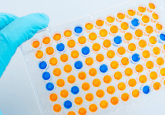Promising results for predictive test of myocardial infarction

Researchers have developed an assay that could identify patients at high risk of myocardial infarction.
A group of scientists from The Scripps Research Institute (CA, USA) have adapted a fluid-phase biopsy technology platform, termed ‘high-definition circulating endothelial cell assay’, which could be used to indicate patients that are at a high risk of myocardial infarction.
The assay detects circulating endothelial cells (CECs), as increased levels of CECs are seen in a variety of pathological conditions, including myocardial infarction. The assay is able to distinguish CECs from other white blood cells due to their distinct morphological structure.
According to the report, the team analyzed blood samples from 79 myocardial infarction patients, 25 healthy controls and six patients undergoing vascular surgery. The results indicated that CEC levels are significantly increased in patients who recently had a myocardial infarction compared with healthy controls. In addition, the assay demonstrated higher specificity than the current FDA-approved assay ‘CellSearch®’, which is used to detect CECs in cancer patients.
Lead researcher, Peter Kuhn commented, “The goal of this paper was to establish evidence that these CECs can be detected reliably in patients following a heart attack and do not exist in healthy controls – which we have achieved.” He continued, “Our results were so significant relative to the healthy controls that the obvious next step is to assess the usefulness of the test in identifying patients during the early stages of a heart attack.”
Sources: Researchers develop test to predict early onset of heart attacks; Bethel K, Luttgen MS, Damani S et al. Fluid phase biopsy for detection and characterization of circulating endothelial cells in myocardial infarction. Phys. Biol. DOI:10.1088/1478-3975/11/1/016002 (2014) (Epub ahead of print).




